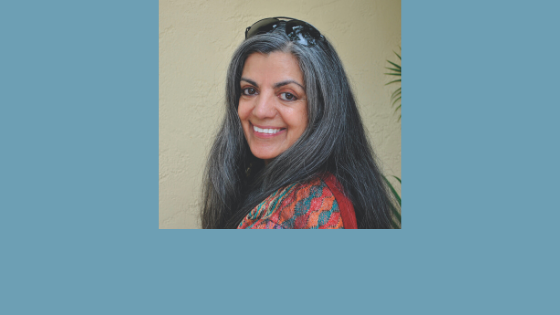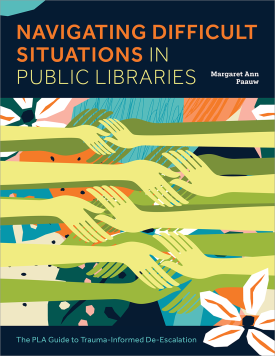“Every Ghost Has its Own Particular Way of Haunting”—Mamta Chaudhry on her Spectacular Debut Novel

In Mamta Chaudhry’s stunning Haunting Paris, Sylvie, a musician mourning the recent death of her beloved Julien, listlessly prepares for Paris’ bicentennial as she opens her home to vacationing American academics. Yet Sylvie is hurled out of her routine when she chances upon a mysterious letter in Julien’s desk. This discovery sparks a thrilling investigation, as Sylvie plunges into Julien’s family’s heretofore unknown experiences during World War II. While Sylvie races through the streets of Paris, the ghost of Julien watches on, providing a panoramic view of the city’s tumultuous history and revealing the painful moments from his past he could not share during their life together. Critics and fellow writers have showered Chaudhry’s debut novel with praise. Publisher’s Weekly hailed it as “a heart-wrenching love letter to Paris” and Russell Banks called it an “audaciously, imaginatively constructed, with a heartbreaking, profoundly adult love story at its center.” Chaudhry wrote to Brendan Dowling via e-mail on September 30th. Photo credit Daniel Fryer.
You have a background as a journalist. How did you find your way to writing novels?
As an English major, even when writing for newspapers and magazines in India early on, I was always attracted to feature articles rather than hard news. When I came to the States to study Journalism at the University of Florida, I discovered New Journalism in one of my graduate classes; it was fascinating to read factual stories that read like fiction by writers like Joan Didion, Truman Capote, Gay Talese, Tom Wolfe. Not surprisingly, I combined my twin interests—journalism and literature–– for my thesis, which was about the journalism of Charles Dickens. Eventually, when I had to choose between the two, I chose literature, recalling Pound’s aphorism that literature is news that stays news. And recently, in a plot twist that would be considered implausible in fiction, Nan Talese––who is married to Gay Talese––edited and published my first novel.
The novel is narrated in part by the ghost of Sylvie’s lover, Julien. How did you decide to include his spectral perspective on the events of the story?
I don’t believe in ghosts. But in a city like Paris, they keep you company wherever you go. It gives me goose bumps to remember that the French word for ghost is revenant, one who returns. What draws you back, I want to ask them? But they retreat into the shadows and into silence. With Julien, I finally found a ghost who could answer my question: he is drawn back to a place he couldn’t bear to leave, a woman he loved beyond life itself, and by unfinished business that made him restless even in the afterlife. Haunting Paris is a ghost story, but the ghost is the least terrifying thing about it. Tolstoy writes, “Each unhappy family is unhappy in its own way.” And every ghost has its own particular way of haunting, there is no spectral template. I needed a narrator who knew a lot more about the city than one can learn in a single lifetime, who could see the underlying patterns over the long course of history. Yet my ghost, very deliberately, is not omniscient. As Julien himself says, “My terrain is not the future, but the past.”
The novel is set in a part of Paris not often featured in novels, on the Île Saint-Louis. What made this island the ideal location for your story?
Like many others, I fell in love with Île Saint-Louis during my first visit to
Paris. My husband and I have spent a lot of time there over the years and it’s a neighborhood where we feel very much at home. I’m also enthralled by the fact that it was home to so many people I admire: Marie Curie lived along one quay, Camille Claudel sculpted on another; a number of writers and artists and musicians were drawn to the island over the centuries. Chopin once played just a few steps from where we stay!
Though bridges link it to the mainland, the little island remains an oasis of tranquility. As Julien says about the place he loved and once called home: “Even now, when I leave the bustling main streets with their restaurants and boutiques for the slumbering quays where stone and water do not change with the times, I feel I have stepped back several centuries. That is the appeal of this place, so close to everything and yet so far from it all.”
The novel immerses us in two distinct times in French history, World War II and the celebration of its bicentennial in 1989. What was your research to get all the tiny details right?
Obviously, it was a lot of reading, a lot of research, walking those neighborhoods, talking to people. I filled so many notebooks with what I learned, through archives, and films, and interviews. But I didn’t want to cram the story so full of facts that the historical detail overshadowed the people I was writing about. When you read a history of the time, you learn what happened; when you read a novel, you feel you were there while it was happening. To get that visceral reaction, I incorporated the historical research judiciously, preferring to include a few telling details that would summon up the time, make it ring true. And to let them unfold through the consciousness of the characters, so that the spotlight remains always on them. And of course, on the city of Paris, which is itself a character in the novel.
One of the most powerful parts of the book is the depiction of the roundup of French Jews during Operation Vent Printanier in 1942. What was it like as a novelist imagining and recreating the horrific events of that day?
That was one of the hardest parts of the novel for me to imagine, let alone to write. But one of the overarching themes of my book is the importance of memory. When the horrors of the Holocaust came to light, the world made a promise: Never Forget. But it increasingly seems that we are in danger of forgetting and the warning that “Those who forget history are condemned to repeat it” is as urgent as ever. A recent exhibit at The Museum of Jewish Heritage in New York was called Auschwitz. Not Long Ago. Not Far Away. That makes you catch your breath. In order to prevent atrocities from happening again, one has to look the past full in the face, to make a moral reckoning. If one averts one’s eyes, if one remains silent, then one is complicit. How could so many turn a blind eye to what was happening––people being dragged from their homes, children being torn from their parents––we ask ourselves about the roundup of French Jews. It’s a question I constantly asked myself when I was writing Haunting Paris. At the time I thought I was writing about something in the distant past; it now seems uncannily timely.
Music plays such a central role in so many of the characters’ lives. How does music influence your writing process?
That is so true . . . music pervades the book: Sylvie is a gifted pianist and it is
her playing that first attracts Julien’s attention. Other characters, too, have their own special connection to music—the concierge, for example, enjoys songs that set her feet tapping—she has even taught Coco the dog to dance to those tunes. Then there is the music of the streets, the popular bal musette melodies played on the accordion. I’ve worked as an announcer at classical music radio stations in various cities, and I know first-hand how haunting music can be. Some authors have a playlist for when they write, but I need absolute silence, all the better to hear the music of the language, its cadences, its rhythms, its echoes.
And finally, what role has the library played in your life?
Happily for me, Calcutta, where I was born and brought up, is a book-lover’s paradise, with its famous bookstalls on College Street, and a plethora of bookshops and libraries throughout the city. I used to haunt my school library, and then later the one at Loreto College. There was also the Oxford bookshop on Park Street, which at that time was a lending library as well; the British Council Library; the library at Saturday Club, where I would have my nose buried in a book while my friends played badminton or had tea on the lawn.
My first student job in the States was at the university library, where I must admit I was very slow at shelving books because I couldn’t resist dipping into them. After a while, I could find my way blindfold around the stacks at the University of Florida, where I got my master’s, and at the University of Miami, where I got my Ph.D. Even though I do a lot of research on the internet now, I still love browsing library shelves and coming across just the right book at the right time; algorithms are no match for serendipity!
Tags: Mamta Chaudhry












